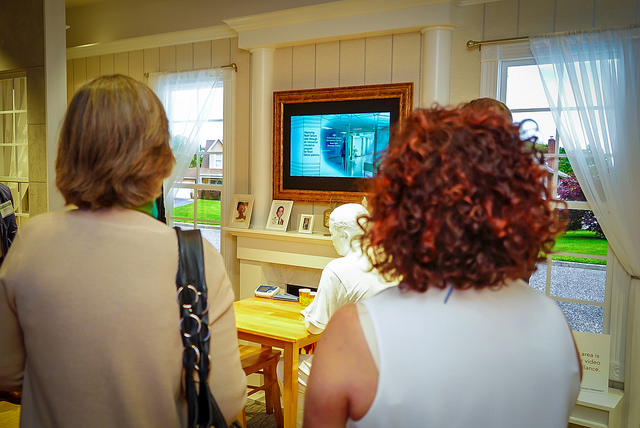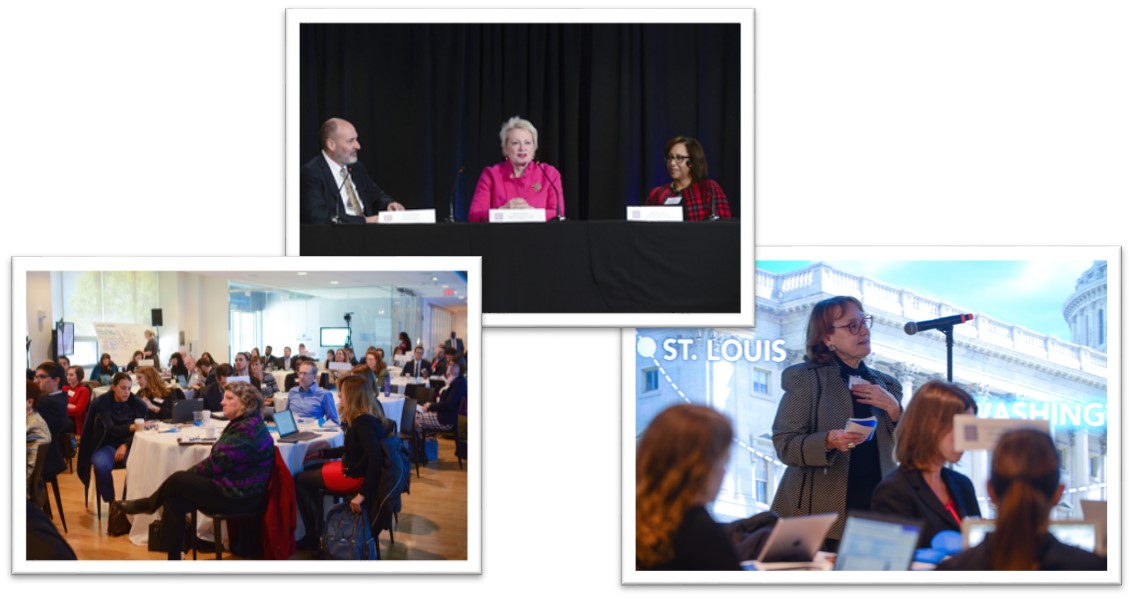 “There’s a thread you follow. It goes among things that change. But it doesn’t change…” reads first line from the poem The Way It Is, by William Stafford, which was recited by panelist David Hirsh, MD, at the 2015 Lown Annual Conference. Medical students, he explained, are often surprised by the breadth and depth of the unique challenges they encounter in the U.S health care system. Holding on to their ‘thread’ is a reminder to focus on the human compassion that led them to the field in the first place.
“There’s a thread you follow. It goes among things that change. But it doesn’t change…” reads first line from the poem The Way It Is, by William Stafford, which was recited by panelist David Hirsh, MD, at the 2015 Lown Annual Conference. Medical students, he explained, are often surprised by the breadth and depth of the unique challenges they encounter in the U.S health care system. Holding on to their ‘thread’ is a reminder to focus on the human compassion that led them to the field in the first place.
The notion that physicians of all stages in their careers are a critical part of transforming the health care system represented a key theme of the conference, which focused on advancing change through grass roots movements in communities and health care settings. Patient advocates also told personal stories of how their lives were affected by a culture of inappropriate use in medicine coupled with unjustified prices for health care services. Other themes included a renewed focus on primary care, overcoming the ‘more is better’ approach to medicine, and bringing dignity and choice to decision making around end-of-life care.
Titled, “Road to RightCare: Engage, Organize, Transform,” the conference was held March 9 through 11 in San Diego, California, and co-funded by Kaiser Permanente. It brought together clinicians, researchers, advocates, patients, and community leaders, many of whom were members of the RightCare Alliance, an organization devoted to reducing overuse, underuse, and misuse of medical tests and treatments while restoring the trusted clinician-patient relationship. United States health care spending is expected to exceed $3 trillion in 2014, with inappropriate use accounting for as much as $1 trillion of that spending. Addressing this crisis is fundamental to achieving the goal of delivering compassionate medicine that benefits both people and their communities.
For more details about the conference, check out this longer post on the Kaiser Permanente Institute for Health Policy website.




